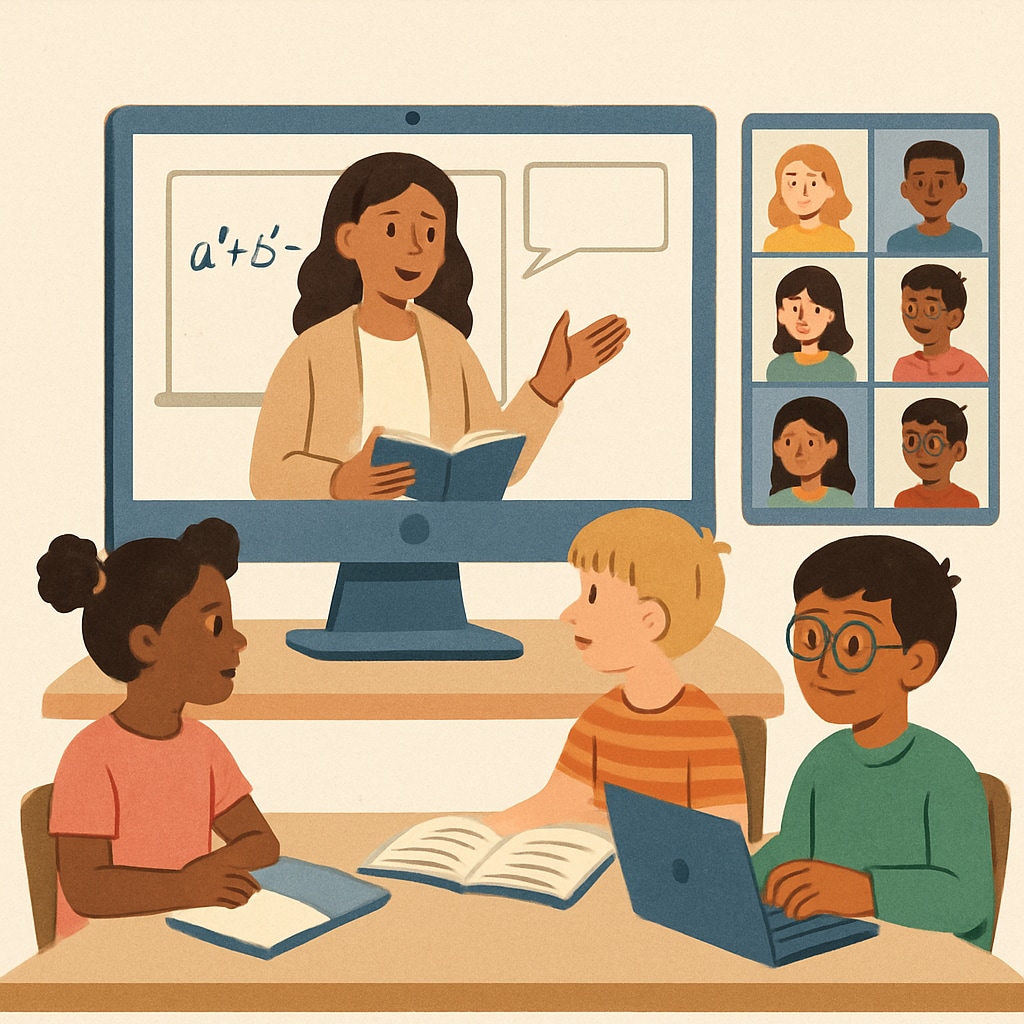Online public education is rapidly becoming a preferred choice for many parents seeking alternative education methods for their children. This trend highlights the growing interest in flexible learning environments, personalized education models, and broader access to specialized resources. These factors, among others, are reshaping how families view traditional schooling and are paving the way for innovative approaches to education.
Why Parents Are Turning to Online Public Education
In recent years, online public education has gained significant momentum among families. This shift is largely driven by the need for greater flexibility and adaptability in education. For many parents, traditional schooling often fails to address the unique needs of their children, whether due to rigid schedules, one-size-fits-all curricula, or limited access to specific resources.
Online public schools, on the other hand, offer customizable learning experiences that cater to diverse student needs. For example, families with children who excel in certain subjects can benefit from advanced course offerings, while those needing additional support in other areas can access tailored interventions. This balance of challenge and support has made online education a compelling option for many families.

Flexibility: A Key Driver Behind the Shift
One of the most commonly cited reasons parents choose online public education is the flexibility it provides. Unlike traditional schools, which operate on fixed schedules, online programs allow students to learn at their own pace and according to their own schedules. This flexibility is particularly beneficial for families with unique circumstances, such as frequent relocations, medical needs, or competitive extracurricular commitments.
For instance, a student pursuing a career in athletics or the arts may struggle to balance rigorous training or practice schedules with the demands of traditional schooling. Online education allows such students to maintain their academic progress without compromising their personal goals. As a result, families are increasingly drawn to this adaptable learning model.
Access to Specialized Resources
Another significant factor influencing parents’ decisions is the access to specialized educational resources that online public schools can provide. Traditional schools may lack the infrastructure or funding to offer classes in niche subjects, advanced placement courses, or programs for students with learning disabilities. Online programs, however, often have a wider range of options, made possible by their digital infrastructure.
For example, online public schools commonly provide access to unique courses such as coding, robotics, or foreign languages that a local school may not have the capacity to offer. Similarly, these programs often have resources for students with special educational needs, such as individualized learning plans or speech therapy sessions conducted virtually. This access ensures no student is left behind, regardless of their specific requirements.

The Role of Technology in Online Public Education
Technology plays an integral role in the success of online public education. Advanced learning platforms, interactive tools, and real-time communication methods make it possible for students to engage deeply with their curriculum. Parents also appreciate the transparency that digital tools provide, as they can monitor their child’s progress and performance more easily than in traditional settings.
Furthermore, technology enables a global perspective in education. Students can connect with peers and educators from different parts of the world, gaining exposure to diverse viewpoints and cultures. This enriched learning experience is another reason why many parents are opting for online public schools.
Challenges and Considerations
While the benefits of online public education are numerous, it’s essential to acknowledge the challenges as well. One potential downside is the lack of social interaction compared to traditional schools. Parents must ensure their children have opportunities to connect with peers through extracurricular activities or local community programs.
Additionally, the success of online education often depends on parental involvement. Unlike traditional schools where educators oversee most of the day-to-day learning, online programs require parents to take a more active role in managing their child’s schedule and progress. Families considering this option should evaluate whether they can commit the necessary time and effort.
Finally, not all online programs are created equal. Parents must thoroughly research and select accredited programs that meet state standards and provide the support their child needs.
The Future of Online Public Education
As online public education continues to grow in popularity, it is likely to influence broader changes in the education system. Traditional schools may adopt more hybrid models, blending in-person teaching with online components to provide greater flexibility and inclusivity. Policymakers and educators will also need to address challenges, such as ensuring equitable access to technology and internet connectivity for all students.
Ultimately, the rise of online public education reflects a shift in how families prioritize their children’s educational needs. Whether motivated by a desire for flexibility, personalization, or access to specialized resources, more parents are embracing this model as a viable alternative to traditional schooling. As this trend evolves, it will undoubtedly shape the future of education for years to come.
Readability guidance: This article uses clear headings, concise paragraphs, and balanced sentence structures to ensure accessibility for a broad audience. The inclusion of examples and external links supports understanding and credibility.


